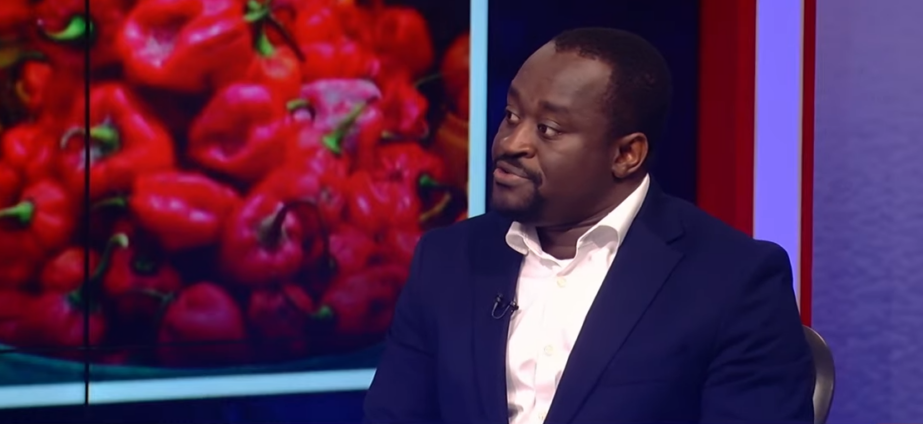Economist and political risk analyst, Dr Theo Acheampong, says that the tastes and preferences of Ghanaians is a contributing factor for the soaring food prices.
According to him, there must be a national campaign to promote the consumption of locally produced food in response to the significant increases in food prices amidst the country's economic challenges.
His comment follows the ever increasing food prices in Ghana amidst the current economic challenges in the country.
Speaking on JoyNews’ AM Show on June 5, Dr. Acheampong pointed out the need for competitiveness in locally produced goods to encourage increased consumption.
He explained that for many consumers, the decision to purchase imported alternatives often comes down to economic considerations such as affordability.
“To consume more means it has to be competitive in that sense. Other than that, for the ordinary man on the street, it comes down to the economics of it. How much do I have to spend to buy pepper, the tomato, the toothpaste, the milk? So if I go and I find an alternative on the market and it's cheaper than what is coming from the local market, often people will go for that versus the local alternatives.”
Prices of vegetables like carrots, lettuce, and green pepper have seen a sharp increase affecting their sale on the market.
The situation has forced many vendors to dispose of the perishable goods as some traders say they are beginning to record low sales and cannot break even.
Dr. Acheampong attributed the price increments to port duties, exchange rates, and transportation costs, which directly contribute to the cost of living and inflation expectations.
“If you break the year-on-year figures down, for April it was about 25 per cent- food inflation 26.8 percent and then non-food inflation 23.5 per cent. And you can track the series, go back a couple of data points and you still have this persistent issue of food inflation being a major issue.”
Latest Stories
-
Engender trust to resolve Bawku crisis – Former Defence Minister Dominic Nitiwul advices
21 minutes -
Guardiola divorces wife of 30 years
23 minutes -
Up to 4 in 10 people could develop dementia after 55. What you can do to lower your risk
31 minutes -
Mohbad’s widow, father face-off over DNA test
38 minutes -
US to remove Cuba from state sponsors of terror list
45 minutes -
Jideofor Adibe: Democracy and its Discontents in Africa
48 minutes -
Sierra Leone declares emergency over mpox outbreak
1 hour -
South Korean investigators arrest impeached President Yoon, ending weeks-long standoff
1 hour -
Attack on Electrochem sends wrong signals to investors – Ada Traditional Council
1 hour -
Couple in court for allegedly defrauding urban planner of GH¢320K
2 hours -
US markets watchdog sues Musk over Twitter stake disclosure
2 hours -
Bawku needs firm and fair governance to achieve lasting peace – Dominic Nitiwul
4 hours -
Bawku peace eluded us despite our best efforts – Former Defence Minister Nitiwul
4 hours -
Mozambique opens new parliament amid opposition protests and boycotts
5 hours -
Substitute Jota equalises as Liverpool draw thriller with Forest
5 hours

